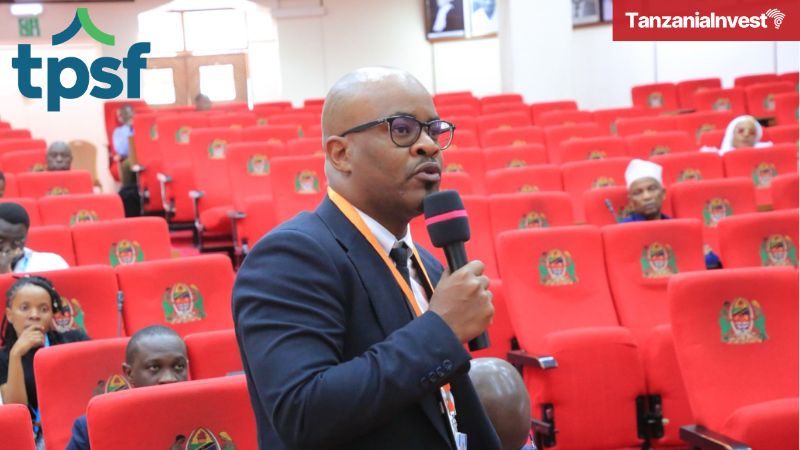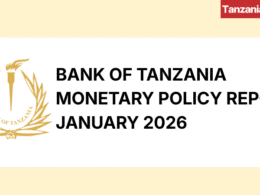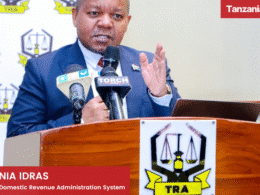On 20 June 2025, the Tanzania Private Sector Federation (TPSF) constructively raised concerns over the government’s proposal to introduce a 10% withholding tax on retained earnings undistributed within six months, during a public hearing on the draft National Budget 2025-2026 in Dodoma.
The hearing, organized by the Parliamentary Budget Committee, brought together private sector associations, business leaders, and policymakers to review key fiscal measures under consideration in the budget draft.
TPSF, represented by CEO Raphael Maganga, cautioned that the proposed 10% withholding tax could hinder business expansion and reinvestment, undermining Tanzania’s ambitions for private sector growth and formalization.
Maganga highlighted that this tax would impact companies of all sizes and could discourage informal businesses from formalizing if formal registration results in new tax burdens.
He urged the government to adopt tax policies that foster growth rather than constrain it, warning that imposing the withholding tax indiscriminately risks slowing investment, reinvestment, and capital formation, especially in strategic and early-stage sectors.
Maganga further argued that Tanzanian companies remain small compared to regional and global competitors and should be supported to build capital through reinvestment.
He described the six-month deadline for distributing retained earnings as too short for most businesses to effectively reinvest, stating that such a measure could have unintended negative effects on long-term growth.
He also noted that taxing undistributed retained earnings amounts to double taxation, since those profits have already been taxed as corporate income.
Maganga acknowledged that while the tax could generate around TZS 130 billion in revenue, the broader economic consequences could outweigh the expected fiscal gains.
TPSF’s main recommendations to the government included exempting reinvested or non-cash-based retained earnings from the tax, providing clear guidelines to ensure the new rule only applies to earnings accumulated after the legislation is enacted, and extending the timeline for distributing retained earnings from six months to one year to allow for more effective long-term investment planning.
In his recent budget presentation to the National Assembly, Finance Minister Dr Mwigulu Nchemba explained that the withholding tax on retained earnings is designed to address a longstanding gap that some firms have exploited under the guise of reinvestment.
He stated that the measure is expected to generate TZS 130.62 billion in government revenue. Dr Nchemba also clarified that the withholding tax on retained earnings does not represent double taxation but is instead an anti-avoidance rule to ensure that both dividends and retained earnings are taxed in line with the equity principle.
In addition to the public hearing, TPSF hosted a high-level review session with key industry players to assess the broader implications of the draft 2025/26 National Budget on Tanzania’s business environment.
Discussions underscored the need to balance revenue generation with private sector sustainability, with consensus on the importance of encouraging reinvestment and local value addition—especially in capital-intensive and emerging sectors.
Participants discussed the significant effects of energy and fuel pricing on sectors such as agriculture, transport, and manufacturing, and welcomed targeted incentives such as VAT exemptions and service levy reductions as steps towards sectoral development.
There was also strong support for expanding the tax base through innovation, productivity, and digital inclusion to strengthen long-term economic resilience.
TPSF reaffirmed its commitment to ongoing public-private dialogue and to providing evidence-based recommendations to support a competitive, inclusive, and sustainable economy, while working to ensure that fiscal measures align with government revenue objectives.











